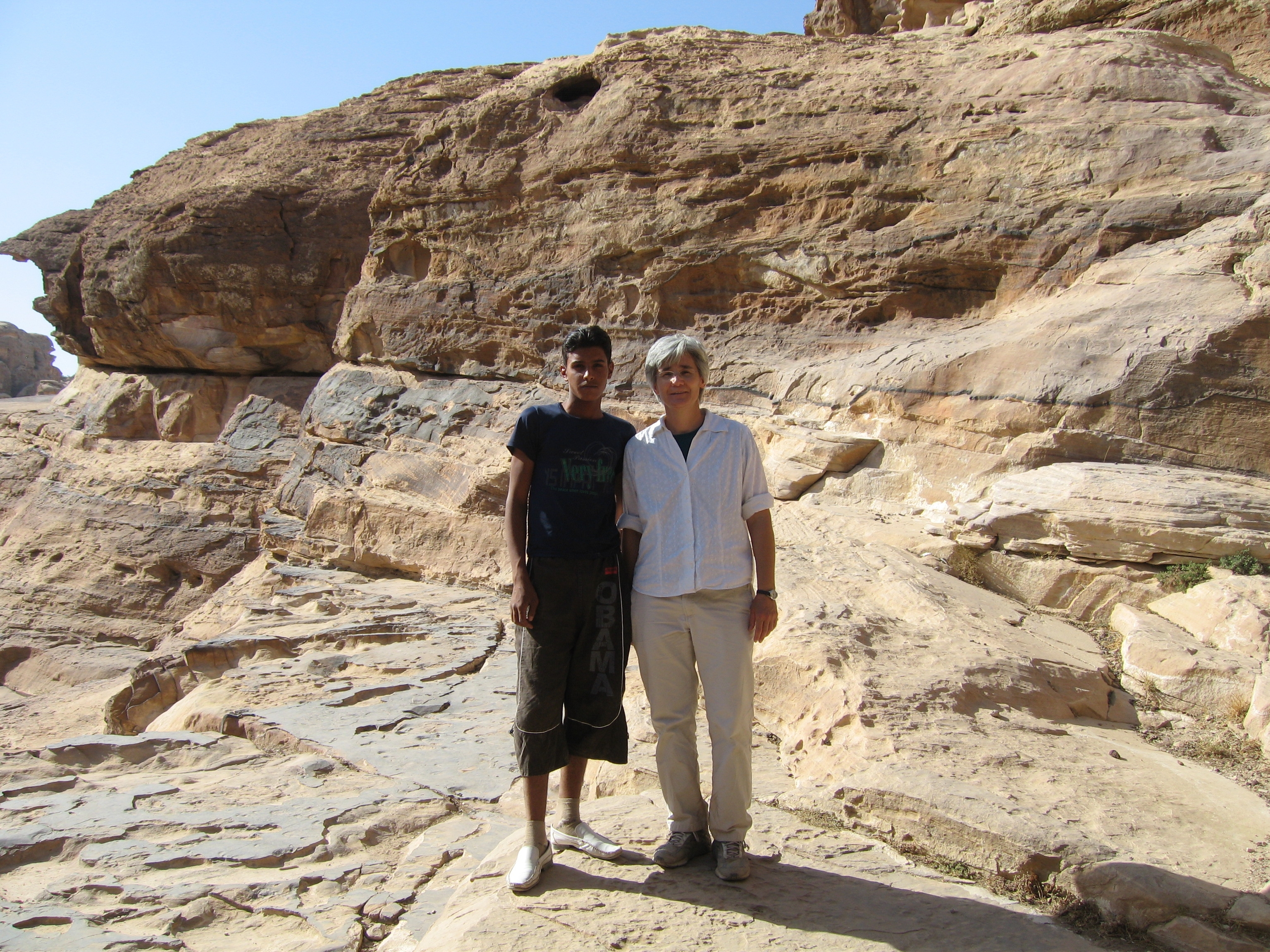Wednesday, May 11, 2011
Jordan’s Queen Rania is looking to American academia to help bolster her nation’s pedagogical structure, and instructors from the West have answered the call, including Rider’s Dr. Kathleen Browne.
by Sean Ramsden
At a time when more and more innovative educational processes are gaining traction in the United States, teachers on the other side of the earth are looking to the halls of American academia for guidance as they seek to bolster their own pedagogical structure. Eager to help spread improved methods of teaching, instructors from the West have answered the call, including Rider’s Dr. Kathleen Browne.
Browne, assistant provost in the Teaching & Learning Center on Rider’s Lawrenceville campus, recently returned from the Kingdom of Jordan, where Queen Rania Al Abdullah established the Queen Rania Teachers Academy (QRTA) in 2009, in cooperation with Columbia University Teachers College and the Jordanian Ministry of Education. American professors and administrators have been traveling to Amman, Jordan, over the last two years to offer specialized workshops for QRTA with cohorts of teachers from several Jordanian schools.
QRTA’s long term goal is to improve English writing, math and science instruction among the approximately 83,000 teachers staffing schools in Jordan. The participating teachers from the United States work to implement the new strategies formed at the academy and share their experiences with their colleagues.
Browne says that cultivating “turnkey people” to bring their experiences to the people in their district is just the start for the nascent program, which will evolve over time.
“The program is growing rapidly,” said Browne, an earth scientist by expertise, who first contributed to the Amman-based science academy in October 2010 at the request of Dr. Wil van der Veen, director of the Science Education Institute, New Jersey Astronomy Center, at Raritan Valley Community College in Branchburg, N.J. Van der Veen had previously been invited by Columbia’s Teachers College to lead the specialized science workshops.
Van der Veen was acquainted with Browne through their work for Rider SELECT’s CONNECT-ED program, a professional development consortium of 14 central New Jersey districts and independent schools; Rider and Princeton Universities, Raritan Valley Community College; Bristol-Myers Squibb Company; and the National Staff Development Council. Rider serves as the lead institution for the consortium, with Browne as its director. When van der Veen needed additional help rounding out his field of science educators at QRTA, his familiarity with Browne’s work presented her with this unique opportunity.
“Wil needed more ‘person power’ since the program is spreading to other locations in Jordan, so he asked me last summer to contribute in October,” Browne recalled. “Our previous collaboration was the ideal preparation for QRTA, since the inquiry approach to teaching and learning that we use in CONNECT-ED, which promotes a deeper understanding of scientific concepts, is the focus of the QRTA science academy.”
What Browne called a “trial run” of sorts in October was a success, and she was invited to return to QRTA in March for a weeklong assignment in Amman, again by van der Veen.
“We kept a very intensive schedule,” she said. “We left on Friday night and arrived around midday on Saturday. Our work week started on Sunday with a lengthy prep day with the QRTA staff to familiarize them with the agenda and finalize plans. Then we started three days of workshops, followed by a debriefing day before we left to return to the states.”
Browne says her experience at QRTA was very similar to the work she does with teachers in New Jersey.
“The teachers there have the same challenges, the same passion and the same need for professional development,” Browne said. “While there are some cultural differences in their system and among their population, the teachers still face some of the same challenges in implementing effective instruction. One standout difference I noticed, though, is the woefully limited resources most of the public schools have access to. They are operating with very little.”
QRTA’s efforts provide much-needed teacher support, according to Browne, who hopes they will have the long-term outcomes desired. “It has been rewarding for me to contribute to this effort,” she said. “I also hope the relationships I established in Jordan will lead to future work with Jordanian teachers, and as that work unfolds, perhaps new opportunities for Rider may arise.”

